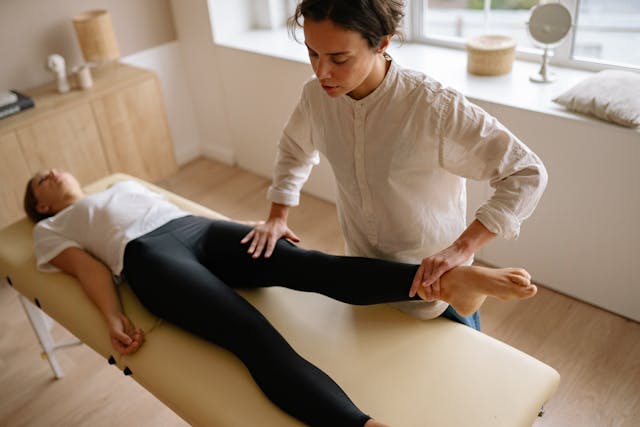Sciatica is a sensation that can manifest itself as a moderate to severe pain in your back, buttocks, and legs. You may also feel weakness or numbness in these areas. If you’re experiencing pain that flows from your lower back through your buttock area and into your lower limbs, it’s typically sciatica. The sciatic nerve is your body’s longest nerve and one of the most important ones. It has a direct effect on your ability to control and feel your legs. When this nerve is irritated, you’ll experience sciatica. Sciatica is the result of damage or injury to your sciatic nerve, so other symptoms of nerve damage are usually present with the pain. Other symptoms may include the following:
· You may have pain that gets worse with movement. · You may have numbness or weakness in your legs or feet, which is usually felt along your sciatic nerve pathway. In severe cases, you may experience a loss of feeling or movement. · You may feel the sensation of pins and needles, which involves a painful tingling in your toes or feet. · You may experience incontinence, which is the inability to control your bladder or bowels
Sciatica occurs when the sciatic nerve becomes pinched, usually by a herniated disk in your spine or by an overgrowth of bone (bone spur) on your vertebrae. More rarely, the nerve can be compressed by a tumour or damaged due to diabetes.
Risk factors Risk factors for sciatica include: · Age- The most common causes of sciatica are age –related. · Obesity-Excess body weight increases stress on the spine, thus contributing to the spinal changes that trigger sciatica. · Occupation-carrying heavy loads or driving a motor vehicle for long periods might play a role in sciatica. · Prolonged sitting. People who sit for prolonged periods or have a sedentary lifestyle are more likely to develop sciatica than active people are. · Diabetes. This condition, which affects the way your body uses blood sugar, increases your risk of nerve damage.
Complications
Although most people recover fully from sciatica, often without treatment, sciatica can potentially cause permanent nerve damage. Seek immediate medical attention if you have: · Loss of feeling in the affected leg · Weakness in the affected leg · Loss of bowel or bladder function
Prevention
It's not always possible to prevent sciatica, and the condition may recur. The following can play a key role in protecting your back: · Exercise regularly. To keep your back strong, pay special attention to your core muscles — the muscles in your abdomen and lower back that are essential for proper posture and alignment. · Maintain proper posture when you sit. Choose a seat with good lower back support, armrests and a swivel base. Consider placing a pillow or rolled towel in the small of your back to maintain its normal curve. Keep your knees and hips level. · Use good body mechanics. While standing/ sitting for longer time or lifting heavy weight maintain proper body posture. · Your doctor might also recommend putting cold packs on your lower back for a couple of days and then switching to hot packs for a few days after that. There are also lots of good stretches for lower-back and sciatic pain relief. · Staying in motion will reduce the inflammation so when you have sciatica it’s more important to keep moving. If you sit still, the nerve will continue to be irritated in that spot.
Homeopathy for Sciatica
Homeopathy is quite effective to treat neuralgic pains, including sciatica. Homeopathy helps in controlling the pain during the acute attack of sciatica as well as helps in preventing the recurrence of such episodes. Homeopathic medicines, which are natural and safe, work on the root cause of sciatica for complete, effective healing and cure. In fact, a homeopathic consultation, if taken in time, could prevent surgical intervention in cases of sciatica.
